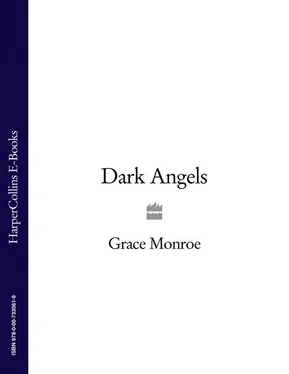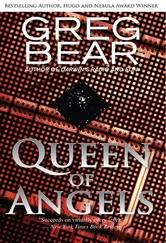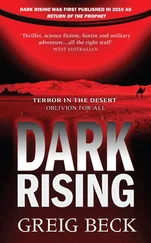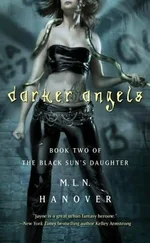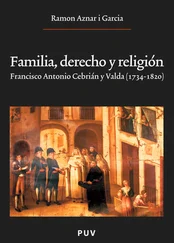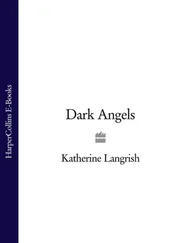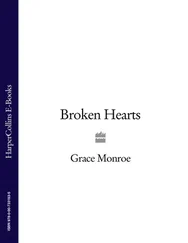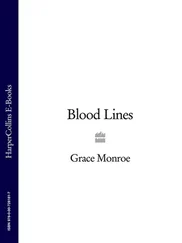By the time I realised this, I also realised that I was spending a hell of a lot of time alone anyway. I decided that a flatmate was in order and texted lots of old pals from university and around–Richard Sturgeon and I had got on well when we were students together, and I was delighted when he got back to me and said he was working in Edinburgh and needed somewhere to stay.
I had hardly seen him recently. We both shared a house, and, when we had time, shared laughs too, but those times were rare just now. Not only were we both working ridiculous hours, but the bone of contention which was always between us seemed to be even more problematical than usual. I wasn’t fighting Fishy–I was fighting DC Richard Sturgeon. I had always thought Fishy had thrown his talent away by joining the police force. I knew how good a lawyer I was, and the thought that the one person who I thought was better than me had actually chosen a different path was unfathomable. His job appeared to be just as stressful as mine, judging by his insomnia and weight-loss, but I didn’t have much sympathy. I just couldn’t understand why he was taking this career path–I wasn’t just being stubborn; I genuinely thought he would be better out of the police force, especially given that he seemed to be miserable all the time anyway. Still, as every women’s magazine on earth would tell me, I needed to be there for him as a friend rather than a constant critic.
In truth, Fishy was just another one to add to my list. Another one hacked off at me, another one to push out of my mind as I headed off to the station. Sergeant Munro would be there having a fit at my lack of promptness, and Eilidh Buchanan was already gunning for me.
Roll on Kailash Coutts–could it get any worse than a tart who already disliked and had tried to bankrupt me, now demanding that I represent her in a murder case?
There was no traffic–quite right too, normal people should be in bed at this time of night/morning. The cobbles were greasy and wet though, and I had to keep my speed down to stop the bike from skidding on the road.
Driving conditions were treacherous. I had no time to enjoy the beautiful buildings as me and Awesome climbed Dundas Street in the heart of the New Town.
Stuck at the traffic lights at the bottom of Hanover Street, the Sphinx sitting atop of the National Gallery stared down ominously at me. If she was foretelling something, I couldn’t read her warnings, but I knew that the day would bring a stark new world for someone. Out there, somewhere, a wife was waking up to the news that her husband was dead. Does he have children, I wondered? If so, how will they feel? They will be expected to walk upright, go to work or school, and keep a roof over their heads. Crime rips people apart and I see it every day, it’s what pays my mortgage and it’s what keeps me awake at night. It surprises me that more people don’t seek revenge.
The lights changed, and my musings continued. I always think on my bike, solve problems, but Kailash Coutts eluded me. What could this man have done that was so heinous it warranted his murder? Kailash was the self-appointed dissolute ruler of the city. Her wealth, which was considerable, was built on men’s depravity, but to acquire her fortune, she must have seen everything (and been well paid for it). What could have been so new to her, or so terrible, that she felt she had to deal with it–permanently?
I wanted to know who this man was who had been dismissed by her. He was probably white, with the usual number of fingers and toes; he was doubtless older than my twenty-eight years. He would be ordinary by most standards, and I’d imagine his wife and work colleagues would have no idea of his secret life. Or would they? One thing my work has taught me: you can never tell someone else’s vice, unless you have that particular sin in you. It was a truth I often saw in my work. Edinburgh is the city of split personalities, its establishment was the inspiration for the original schizo-boys, Dr Jekyll and Mr Hyde, and there were plenty of men out there who still led pretty effective double-lives of suburban normality married to episodes in the likes of Kailash Coutts’ dungeon. There wasn’t much I could say in favour of Kailash herself, but at least what you saw with her was what you got, or in any event, it was after the Roddie Buchanan scandal.
Edinburgh Castle sat, impenetrable on its rock, shrouded in mist, as I turned down the Royal Mile, past Deacon Brodie’s pub. The sign on the tavern wall told the true tale of his downfall and continued the myth of two-faced Edinburgh denizens: ‘worthy by day, a gentleman burglar by night, hung on the very gallows he invented’. As a child, I had stood with my mother in front of the painting of the hanging Deacon, relentlessly questioning her: was he my namesake? Was I named after Deacon Brodie? To my disappointment, she always blasted my romanticism out of the water, repeatedly telling me that I was named after the old tea factory that our thirteenth-storey flat overlooked. I still clung to the hope that I had more in common with a licentious, gambling, thieving criminal hanged for his sins than a packet of tea.
On the opposite corner to the pub that still drew me in, outside the High Court, sat a statue of Hume, the father of Scottish law. Draped in a sheet, I felt the artist could have used some aesthetic licence–the sagging pectorals of the carved man made me swerve every time I drove past, although it appeared that only the pigeons and I took any notice of him.
I increased my speed and Parliament House sped by. The route to St Leonard’s was a trail of the crime history of Edinburgh, and the narrow closes where body snatchers and serial killers Burke and Hare plied their trade to keep university anatomists busy flew past. Now a city of repute, the Capital could not easily erase its disreputable past. The new Scottish Parliament building at the foot of the Mile did nothing to expunge its notoriety–a series of architectural and financial disasters had led us to a point where the whole business had made Edinburgh a laughing-stock and bought only a few dodgy constructs with what looked like bingo-winner stone cladding.
On every corner in Edinburgh, I see an imprint of crime overlaid onto the landscape. I looked up at Arthur’s Seat, the Salisbury Crags looming ominously in the early morning skyline, and remembered the German bride thrown over its cruel edges to her death. Not too heartbreaking for her new husband as he collected the insurance money. Everywhere was the same, every place had a story of cruelty or jealousy or lust or evil. St Leonard’s Police Station nestles at the foot of Arthur’s Seat, in the heart of Edinburgh’s Old Town, and is not averse to putting a few new nasty stories into the history of the city. Ordinarily, the streets around the station are, by and large, deserted. But as I approached it in the early hours, it looked like a three-ringed circus. This spelled trouble.
Reporters with notepads and tape recorders, like flies on a corpse. They were everywhere. A television crew was on the street, a man in a sodden trench coat talking into a microphone, his face serious as a grinding camera recorded him for the morning news.
They were all waiting impatiently, for my arrival. I could have kicked myself for not stopping to put some make-up on, but I genuinely hadn’t realised there would be this much interest in Kailash so early on in the case. Someone at St Leonard’s must have made a tidy backhander alerting the hacks to this one. Reluctantly, I parked and made my way towards them–I didn’t want to look dazed and tired in a million homes tomorrow, but without the benefit of a full-blown Jo Malone overnight kit and emergency make-up box in my backpack, I’d have to accept it.
Читать дальше
